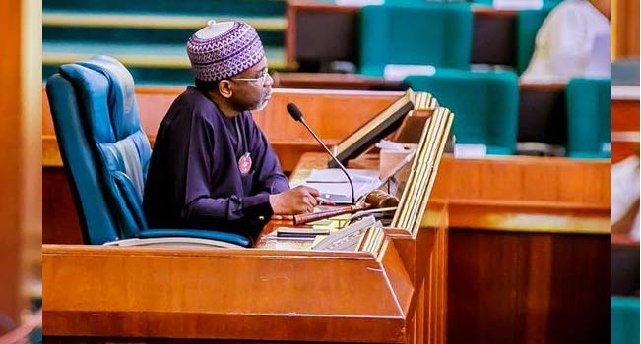A Bill for an Act to provide temporary relief to companies and individuals to alleviate the adverse financial consequences of a slowdown in economic activities brought on by the outbreak of the Covid-19 disease in Nigeria has passed third reading in the House of Representatives.
The Bill, which was sponsored by the Speaker of the House, Hon Femi Gbajabiamila, was given an accelerated hearing at the resumption of plenary on Tuesday.
The Speaker noted that the Bill seeks to provide for relief on Corporate Tax Liability, suspension of import duty on selected goods and deferral of residential mortgage obligations to the Federal Mortgage Bank of Nigeria (FMBN) for a fixed term to protect jobs and alleviate the financial burden on citizens in response to the economic downturn occasioned by the outbreak of COVID-19 disease.
The proposed legislation also seeks to protect the employment status of Nigerians who might otherwise become unemployed as a consequence of management decision to retrench personnel in response to the prevailing economic realities.
The Bill would also provide for a moratorium on mortgage obligations for individuals at a time of widespread economic uncertainty.
Gbajabiamila explained that the bill would eliminate additional fiscal bottleneck on the importation of
medical equipment, medicines, personal protection equipment and
other such medical necessities as may be required for the treatment and management of the Covid–19 disease in Nigeria, to ease the burden of importation and financial burden, thereby fostering easier access and reduction in the price.
The Speaker said that the Bill would cater for the general financial wellbeing of Nigerians pending the
eradication of this pandemic and a return to economic stability.
He said: “Notwithstanding the provision of any other law in force in Nigeria, any employer duly registered under Companies and Allied Matters Act (CAMA), which maintains the same employee status without retrenching their staff as at 1st of March 2020 till the rest of the
year ending 31st of December 2020 shall be entitled to 50 per cent
income tax rebate on the total of the actual amount due or paid as Pay As You Earn (PAYE) Tax under the Personal Income Tax Act Cap C8 LFN 2004 (as amended).
“The following circumstances shall not preclude the rebate to employers under this section:
(a) Where an employee dies of natural causes;
(b) Where employee voluntarily leaves the employment or has already indicated interest to leave the employment before 1st of March 2020; or
(c) Where the employee breaches the Labour Act Cap L1 LFN 2004.
“Under this section, the following words shall be interpreted as: ‘Rebate’ shall mean 100 per cent refund of employer’s income tax which shall be 50 per cent of PAYE Tax due or paid on employees of such employer who maintain the same status of employees from 1st of March 2020 till 31st of December or such further period as the president may stipulate.”
He emphasised that “employers” shall mean and be interpreted to include entities registered both in Part A and Part B of CAMA, but added that Section (3) of this Act does not apply to employers partly or wholly under the Petroleum Profit Tax Act Cap P13 LFN 2004.
The Bill, the Speaker said, also empowers the president to extend the rebate period for the duration during which the COVID-19 disease remains an urgent and severe public health emergency, subject to ratification by a majority of the members of the National Assembly.
He added that notwithstanding, the provisions of National Housing Fund Act 2018 or anything contained in any other Act, law or regulation in force in Nigeria, all payment of mortgage obligations on residential mortgages obtained by individual contributors to the National Housing Fund are hereby
deferred for a period of 180 days effective from the 1st of March 2020.
Gbajabiamila stressed that the Bill empowers the president to seek a further extension of the deferral for a period not exceeding 180 days,
subject to a majority vote by members of the National Assembly.
He explained further that notwithstanding anything contained in any other Act, law or regulation
in force in Nigeria, import duty waiver is hereby granted on medical equipment, medicines, personal protection equipment and other such medical necessities as may be required for the treatment and
management of the Covid–19 disease in Nigeria.
The Speaker said that the Minister of Health may, by regulations published in the gazette, specify such goods that qualify under this section, while the import duty waiver under this section shall take effect from the 1st of March 2020 and would remain in force until the 31st of December 2020.
Source: THISDAY













